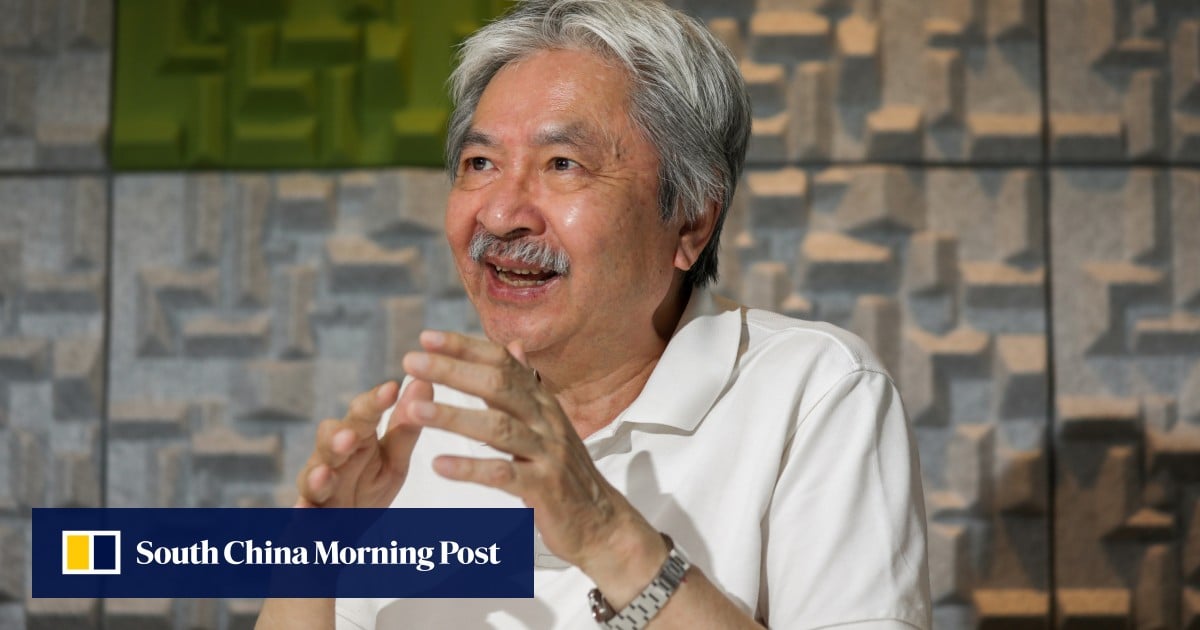Hong Kong should prepare for the rapid uptake of artificial intelligence (AI) by ramping up education technology, a former finance chief has said, citing a study that found a fifth of the local workforce could face unemployment or career changes in the next five years.
John Tsang Chun-wah, who served as financial secretary for a decade before resigning to run for city leader in 2017, also called on stakeholders to consider Hong Kong a gateway for seizing education technology opportunities, a field which encourages increased use of software and hardware in classroom learning, in the Greater Bay Area.
The bay area refers to Beijing’s ambitious initiative to integrate Hong Kong, Macau and nine mainland Chinese cities into an economic powerhouse.
“The [city] government has been focusing on teaching information technology in classes, rather than just adopting technology to equip [pupils’] studies and enrich their experiences,” the former minister said.
Microsoft to bring OpenAI to classrooms at Hong Kong universities
Microsoft to bring OpenAI to classrooms at Hong Kong universities
“At a primary school where I serve as a board member, teachers are using ChatGPT to create different test papers for students with different levels to maximise their benefits,” he said. “The school embraces it, but the policymakers do not align with the innovative practice.”
The coronavirus pandemic had already laid the foundations for incorporating more technology into learning when schools began conducting virtual classes, Tsang said, but acknowledged the city was still in the early stages of embracing the field.
Data from e-learning provider Skills Nation and Dutch authorities showed global investors had injected US$1.4 billion into start-ups specialising in education technology in Southeast Asia over the past eight years.
Global education market intelligence platform HolonIQ last year published a report that named Singapore as the leading force and hub for the region, commanding a 50 per cent market share.
The study also found that Singapore was home to 170 such start-ups, 49 per cent of those operating in Southeast Asia, and a base for two unicorns in the field, Emeritus and LingoAce.

In comparison, Hong Kong lagged significantly behind with just 3 per cent of the market share.
Tsang said he believed Singapore had shown it was willing to help the market thrive through its network of accelerators and incubators, including the government-owned investment company Temasek.
“[The field] is widely recognised as a less appealing, slow-developing and low-return investment. However, it is undoubtedly the future direction of education,” Tsang said.
“In the last couple of years, we have seen more [Chinese companies specialising in education technology] expanding into the global market. Singapore is one of their springboards. There is no reason why Hong Kong cannot fulfil this role.”
The former minister also pointed to a study by recruitment firm Venturenix in June that estimated 800,000 Hongkongers could face unemployment or be forced to find new jobs by 2028 due to the impact of AI-based technologies.
The city had a labour force of 3.8 million people as of July.
AI will put a quarter of Hong Kong’s workforce out of a job by 2028: report
AI will put a quarter of Hong Kong’s workforce out of a job by 2028: report
The report listed data entry clerks, administrative staff and customer service representatives as the most likely to bear the brunt of the change.
“So many people needing to find a new job is daunting to hear as it accounts for one-fifth of our working population,” Tsang said. “Revitalising our economy by launching night bazaars and relying on tourism don’t work as they contribute relatively less to our gross domestic product.”
He called on stakeholders to “leverage our strengths in finance and logistics by infusing technology into them”, adding that the public and private sectors should retrain employees ahead of the technological shift.
“Apart from snatching overseas talent, ensuring job security and facilitating the transition or providing retraining for those affected by technological disruptions are equally important,” he said.
Tsang is also the founder of NGO Esperanza, which is set to host a summit from October 12 to 13 offering a series of talks and workshops for schools and businesses on education technology.
The event is part of the organisation’s efforts to support overseas companies that are working on growing the field.

